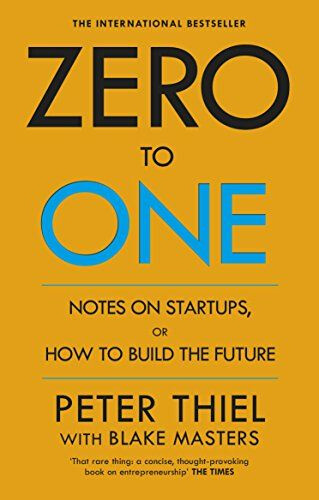
Zero To One masquerades as a business/investing book, but I think it is a deeply profound tome. My notes below.
Peter Thiel famously asks potential employees what he calls the contrarian question: What important truth do very few people agree with you on?
Good answers to the contrarian question are the closest we can come to looking into the future.
Monopoly and perfect competition are simplified economic models for market structures. But most firms are much closer to one extreme or the other than we perceive.
It is true that monopoly is evil – in a static world. In a dynamic world, the incentive of monopoly profits enables long-term planning, creative thinking, and innovation.
When Thiel ran some projections in 2001, he realised that 75% of PayPal’s value would come from cash flows generated after 2011. Terminal value stems from growth and durability: the latter is underrated.
While most analysts focus on short-term growth, the more important question to ask is, ‘will this firm be around 10 years from now?’ The best answers to this question arise not by crunching numbers but through an understanding of intangibles – especially enduring intangibles like people and culture.
Key drivers of monopoly:
1 Proprietary technology that is 10x better
2 Network effects
3 Scalability, especially at low marginal cost of replication
4 Branding built on underlying substance
Throughout history, people’s views of the future have been either definite (concrete) or indefinite (uncertain) and either optimistic or pessimistic.
Definite optimism, often dominated by STEM, is the most potent combination for progress. It entails envisioning a future, then building it – e.g. Apollo mission to the moon
Pessimism of both forms – definite and indefinite – often turns into a self-fulfilling prophecy: one expects the future to be worse than the present and then either finds ways of dealing with it (definite) or accepts it as it unfolds (indefinite)
Indefinite optimism (happy-go-lucky), often characterised by finance and law, is the most dangerous. It is inherently unattainable: how can the future be better if nobody works towards building it?
There are many secrets yet to be discovered. The ‘low hanging fruit has already been plucked’ theory is a bad explanation. Secrets reveal themselves to relentless searchers, e.g. Andrew Wiles proved Fermat’s last theorem after working on it for 9 years.
Thiel has found anecdotally that the lower the salary taken by founders/CEO, the better the startup does.
What is your answer to the contrarian question? Comment below!
| Subscribe To Our Free Newsletter |

